#june st. davis
Explore tagged Tumblr posts
Text
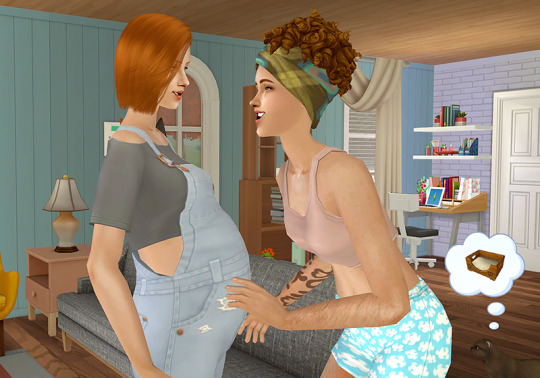
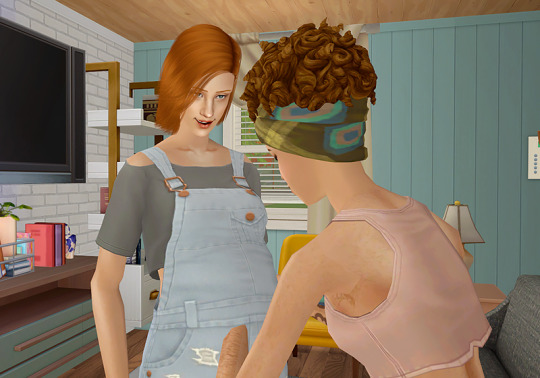

Finally there's a scrap of good news for this family after the disastrous night they just had - Bettina is pregnant! Which means we're officially going to be on Gen 3 soon! Where does the time go?
#ts2#sims 2#sims 2 gameplay#windflower bay#snapdragoned#round 11: st. davis#bettina lafontaine#june st. davis
27 notes
·
View notes
Text
⋆ ˚。⋆୨୧˚ a residue series installment ˚୨୧⋆。˚ ⋆
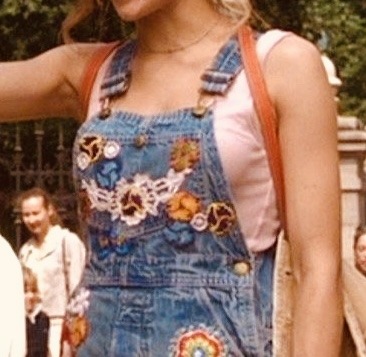
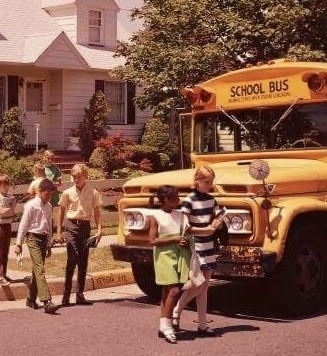

sweet talkin’
main hive 🐝 | next part here: honey, are you comin’?
✎ elementary-teacher!reader (miss.honey) x biker!benny 🏍️
summary: in which “uncle benny” picks up johnny’s girls from school and finds some honey along the way ;)
warnings: not much of anything besides talks of danger & some side eyes from on-lookers. an absolute fluff cake of a piece really. enjoy! x
author’s note: ngl there is some inaccuracies. i fully made up locations & such. never been to chicago or illinois even, but maybe someday :)
word count: 2.8k
💌 requests are open, send ‘em honey 💋
⋆ ˚。⋆୨୧˚୨୧⋆。˚ ⋆
You remember it like it was yesterday, the very first time you met Benny Cross. Ironically, it was one of those sticky sweet days in June, just before the start of summer ‘65. The Chicago heat was hard to beat in the cramped little classroom you worked in on Phipps Avenue. Your third graders were all flushed faces with curly cues frizzing about, and their red little cheeks burned in exhaustion. It was no surprise that you lost their ears to the tsk tsk tsk of sprinklers swirling about on the school grounds. Even though the principal was against it, you were rather relieved to see your students running about the wet grass come dismissal.
It was a lovely reprieve, truly to be out of the shoe box you worked in at the end of the day. Sure, the heat hadn’t let up. It was awfully sweltering passing clammy hand to clammy hand to their designated pick up person. But you loved being a teacher. Moreseo you loved those sweet turned up smiles that graced those baby faces of your students as they chatted about their after school plans. Heading down to the local pool or picking up a firecracker pop at the corner store was such a sweet treat. It made you miss being that young again, finding hidden treasures through the little bits of life.
You moved like clockwork during dismissal, attentive as you made small talk with parents and hugged your students goodbye. The pick of the cycle was usually smooth on your part. You knew who tended to be retrieved right away and who was left hanging, so it took you by a hint of surprise when you found yourself still hand in hand with Mr. and Mrs. Davis’s little girls.
You knew the Davis’s well — as well as anyone could holding residence in the quaint village of McCook, Illinois. Mr. Davis and his wife Betty were perishoners at the local church you frequented with your Ma and Pa. St. Caron’s on the corner of Rose and Dawn. You’d see them all together in their Sunday best, the kids in puff pastry kind-of dresses packed together in a pew with their Ma, while their Pa was mulling about in his pressed suit and tie. There was no trace of the Vandals you’d come to know, the Johnny that would be amplified under that some-what imposterous clean cut demeanor. You’d see him solemn as ever ushering pew to pew with the collections basket for the poor and at communion during the mass.
Yet, if you had to name one thing that complimented Johnny to Mr. Davis, it had to be his consistency with being on time. Never once was he ever late to church. 12pm sharp he’d be looking at his watch, waitin’ for the priest and deacon to do their thang. The same applied for his children and their respected school schedule.
It took you a moment to remember the note from the office that was sent up in the afternoon. In your defense, mastering concentration in this heat proved almost impossible. Until it wasn’t. You could see the lovely writing of the secretary with that neat cursive of hers in the back of your mind, reminding you that the Davis girls would be picked up by their Uncle Benny come dismissal.
That would explain it, you thought. But would it really? Fathoming a member of Mr. Davis’s family not being as meticulous as him? You momentarily wondered how the man would react to such a thing as being late. You were sure it wasn’t in his vocabulary by any means.
Your fingers, engulfing the petite ones of the Davis girls, squeezed their hands reassuringly. “M’sure your Uncle Benny will be here any moment.” Neither of them said anything as you glanced between the two flanked at your sides, little eyelashes blinking up at you without a care in the world. And here you thought they would be just as anal-retentive as their father.
They weren’t.
Since the school yard was becoming less compact with people, and the principal put an end to the fun with the sprinklers, you figured some chit-chat wouldn't hurt to keep them occupied. “You girls have any fun afternoon plans?”
The Davis girl on the right, taller, darker hair, lookin’ far too much like her father — a carbon copy if you will — spoke up then. “Yes! Uncle Benny is takin’ us to a picnic. Gonna see Daddy race his bike, Miss. Honey.”
A bike race, huh? You couldn’t remember seeing anything in the McCook weekly papers ‘bout an upcoming cycling event. But, hey maybe you happened to miss it on your skim of the thing, when your Pa just so happened to put it down for a second durin’ dinner.
“Well, ain’t that sweet!” You chirped, smiling brightly at the girls with genuine excitement in your eyes. “Sure it’ll be tons of fun.”
“S’not when Daddy gets all muddy.” The smaller girl, the one that looked more like her mother. Lighter hair and lighter eyes said. Her tiny face contorted into a grimace.
Muddy? Weren’t cycling races on the roads?
Surely the town would block off the streets like they did for those celebratory parades. The little one was probably exaggerating.
“Aw,” you hummed, a frown dousing your features. “M’sure your Pa is just real dedicated, y’know?” You tried to bring out the bright side for your student. “S’like when you buy a fresh book and worry about those pages dentin’. Y’won’t know if you like it if you don’t read it, right?” The girls nodded. “Dentin’ the pages just goes to show all that love you had for that book while readin’ it.”
“I guess…” The Davis girl shrugged, tiny fingers wrapping about the strap of her pretty pink backpack. Seemingly, she wasn’t as impressed as her sister to the right.
You were gonna change the subject. Gonna start chatting ‘bout something else, when a twist of tiers against the pavement sent a squeak across the air. Your mother-hen instincts kicked in instantly, protective hands pulling the girls behind you without a second thought. All heads turned simultaneously to the intrusion on the road, expecting the worst. Expecting a crash of sorts. But no, there was no crash, just a slick car pulling abruptly up against the sidewalk and jerking to a startling stop. One that could only be equated to the driver going far above the speed limit in a school zone.
It went quiet. Far too quiet as the lot of remaining faculty, students, and parents alike kept their eyes peeled back sharply at the reckless driver. Funnily enough the attentive stares of onlookers could have very well been just as bad as those witnessing an actual crash.
You weren’t any better than the rest, collecting snap shot after snap shot like a roll of consecutive film. You could still hear the engine cutting out, the door swinging open and closing with a solid flick of his wrist. A wrist that would do far worse to you in the bedroom. Far worse in the eyes of your religious upbringing, but would feel too holy to you to be considered a sin.
You only caught a glance of him for a second until his back was facing towards you, thick white letters staking his claim with a skull and crossbones for the Chicago Vandals on his cut down vest.
You’d heard a thing or two about those motorcycle men. Your father ranting and raving about the disturbances near route 95 and police chases. But never, had you ever seen one of them in the flesh up close and personal. A shrill of unprecedented delight shot up your spine at the colorful sight, no longer reserved to those blurry black and white paper cuttings.
Stopping in his tracks, you figured his car must have broken down or somethin’ – but no. He was putting out his cigarette with his worn down boot before making his way over to you, and oh he had his eye on you alright.
A relative unease wahed across the school yard, harder than the obvious heat wave as he sauntered across without a care in the world. As if dozens of heads weren’t makin’ disgusted faces and whispering about. Yet a clear intimidation set over them, people stepping out of the way without a word as if he was a Bible figure. Like Moses parting the red sea.
“Uncle Benny!” One of them chirped. Who you didn’t know, couldn’t know with the sudden flush creeping against your cheeks. Your heart dropped to your stomach once you realized who it was and that the man himself with dirty blonde scruff, calloused fingers, and a black inked layer over a honey toned canvas was makin’ a beeline to you. A beeline to you and the girls.
It was the taller Davis girl that must have called out his name, cause suddenly she was pulling you and her sister forward to meet Benny half way. You almost tripped down the stairs within the broken bubble of her excitement. Barely having a moment’s notice to collect yourself, you found your pristine baby pink ballet flats toe to toe with some scruffed up biker boots that had seen better days. You managed a breath before you looked up and boy were you glad you did.
The wind was practically knocked clean out of you when you were caught face to face with the Benny Cross. It wasn’t because you were scared of him — no. You were more taken aback with how pretty he was. How his deeply set ocean eyes managed to speak volumes without saying a word.
And suddenly, on the front steps of Phipps Avenue School you felt seen. More seen than you had ever felt in your life. He wasn’t the only one sticking out like the sorest of thumbs. So were you with your baby pink tank to match your shoes with your signature embroidered denim overall dress. Hair up and out of your face, loose honey curls frizzing about. Your kitsch tastes and unpolished attire were rather baffling for the picturesque depiction gracing the magazines your Ma read at the salon.
Some would say you were lost somewhere in Neverland. Lots of your fellow teachers would crack jokes here and there ‘bout it too. Sure, on a bad day a jab or two could get to you — but hey you liked what you liked and you weren’t gonna change that. Not for anybody. Not even for your Ma or Pa who grimaced at your bedazzled pins wedged into your messy curls during Sunday mass.
So Benny, well who were you to judge him?
“Hi, you must be Uncle Benny,” you greeted the brood of a man in front of you, flexing a sweet-like-honey smile that was just oh-so-you. You let go of the Johnny look-a-likes hand then, allowing her to wrap her small self around Benny’s leg in pure delight to see him as you outstretched your hand in a shake. To your dismay, he didn’t take it. Instead, his free hand that wasn’t mushing up Johnny’s girls dark locks as he patted her head fished for his pack of Marlboro reds in his vest pocket. That didn’t stop you from introducing yourself though. “I’m Miss. Honey.”
He gave you once over, eyes tracing you from head to toe before the edge of his lip tweaked up in a sly smile. “Honey, huh?” He mused, that deep set voice of his, thick and smokey sweetin’ up something deep inside you.
Dropping your hand back down against your dress, the material felt rather rough on your clammy skin. “Yuh-huh.” You nodded, that tight smile of yours making your eyes twitch just a bit.
A fresh cigarette materialized between his teeth then, unlit. A strange courtesy you found rather charming on the midst of educational grounds. “Hm,” he hummed, the narrow cylinder vibrating against his lips as his eyes devoured you a second time. Yet, you figured he was more unimpressed. Most were anyways.
“Benny! Benny! Can we go see Daddy now?” The girl wrapped around his leg yanked his belt loop with a small finger. The little one was still at your side, hand in hand with you. It was kind of amusin’ how different the two were. It was simple figuring out who was the bigger Daddy’s girl of the two.
“In a ‘inute, sweet-art,” he mumbled, that cigarette of his disrupting any fully coherent sentence from spillin’ out. “C’mere ‘ittle one,” he motioned to the shorter girl who was rather uninterested in leaving. In the midst of your conversation, she managed to keep her hand raised, keeping herself conjoined to you as she sat down on the bottom step in complete and utter protest.
“Don’t wanna.” She pouted down at her bunny tied saddle shoes that matched her pretty little pick-tails.
In a sense, you couldn’t blame her. Now it was all adding up. What was really going on. This wasn’t just some run of the mill village cycling marathon. This was a Vandals bike race.
Any other teacher would have probably made a stink, called the parents in for a sit down with the principal over infiltrating their kids in a biker environment infused with criminal records. But, you weren’t like that — no. Especially when you’d see a child’s eyes light up with so much delight. It was clear that Mr. Davis’s look-a-like was really proud of her father. Who could blame her? Respected throughout the community, a family man who put his all into a trucking' job.
A picnic with some bike racin’ wouldn’t be so bad, right?
Not with Mr. Davis involved.
So, you gave the benefit of the doubt. Sure, it could have been for all those reasons that were swarming about your head, but in actuality your heart was working double time over your mind. The image of the Davis girl clinging to Benny’s leg had teddy bear written all over it, giving you all the sweet talkin’ you’d need. Ironically enough, in due time that soft side of him would turn into plushy lovin’ reserved just for you.
“Lemme,” you mouthed to Benny before getting down to the little one’s level. Flattening out your skirt you took a seat next to her and rested both hands over her own in her lap. “Remember when we were talkin’ about a good book? Dentin’ the pages?” The girl nodded, but didn’t meet your eye. Instead, Benny doing the opposite, his eyes practically grilled onto your peripheral vision. “Well, sometimes if we are too protective of it. Too keen on keeping it all in tack, we’ll never learn not to and we’ll just be more and more disappointed when we come across a little crack we never created in the first place. We may not like it, but it’s there, and there is so much love there.” You squeeze the little girl’s hand. “Just like your old man racin’. You may not like it, but he does, and that’s quite alright. You know why?”
“Why?” She looked up at you then, little doe eyes attentive as ever, clinging onto your every word. It was times like this that reminded you why you were a teacher.
“‘Cause you love him, no matter what” You replied, tilting your head ever-so subtly to observe her reaction.
And oh did Benny love you. He didn’t know it then. Couldn’t fully compartmentalize it until later. Yet, unbeknownst to you, it was one of the first of what would become many of Benny's thoughts on how damn good of a teacher you were, how fine of a wife you’d make, and how sweet of a mother you’d be.
Thankfully, your words must have resonated with the little girl. It only took a moment for those delightful dimples of hers to grace those little features before her lips turned up in a sweet smile. “We gotta go Uncle Benny!” The girl declared suddenly, standing up straight with a whole new attitude. You were glad to supply the optimism. That’s what you were all about. That was the lesson you hoped to instill to your students the most.
You couldn’t help but smile yourself, feeling like a warm blanket was being draped over your shoulders soundly. Not uncomfortable. Not contributing to the intolerable heat wave. You’d only been in your second year of teaching, but hey — small victories like this made it worth it. Made you proud of yourself, even if you couldn’t find such gratitude from others.
Little did you know, Benny — he was so fuckin’ proud. Proud to see you spreading such honey-coated wisdom to a youngin’. And there on the steep steps of Phipps Avenue school as the little one wrapped her arms around you and thanked you profusely before grabbing Benny’s hand and heading to Johnny’s car, he found his mission.
You were gonna be his wife.
He was sure of it.
⋆ ˚。⋆୨୧˚୨୧⋆。˚ ⋆
this was so much fun to write! i hope you liked it :) i’m thinking of also including some honey interviews curtesy of danny ! stay tuned for “from the hive” 🎙️🐝
also to note, my requests are open for any miss honey x benny cross works + any convos about these two in general. don’t be shy honey, i’m all for yapping in the asks.
+ don’t forget to comment if you’d like be added to “da bee hive” (my version of da tag list)
smoochies. all da love xanadu 💋
da bee hive 🐝🍯:
@nervousnerdwitch
@sunnbib
@rose-deathman
@austinbsblog
@thegabbyh
@jihyowrrld
@bellesdreamyprofile
@superemobitch
@m00npjm
@imusicaddict
@astrogrande
@alana4610
@cynic-spirit
@mariaenchanted
#miss honey x benny cross#benny cross x reader#the bikeriders fanfiction#benny the bikeriders#johnny the bikeriders#johnny davis#benny cross#austin butler#tom hardy#austin butler fanfiction
1K notes
·
View notes
Text
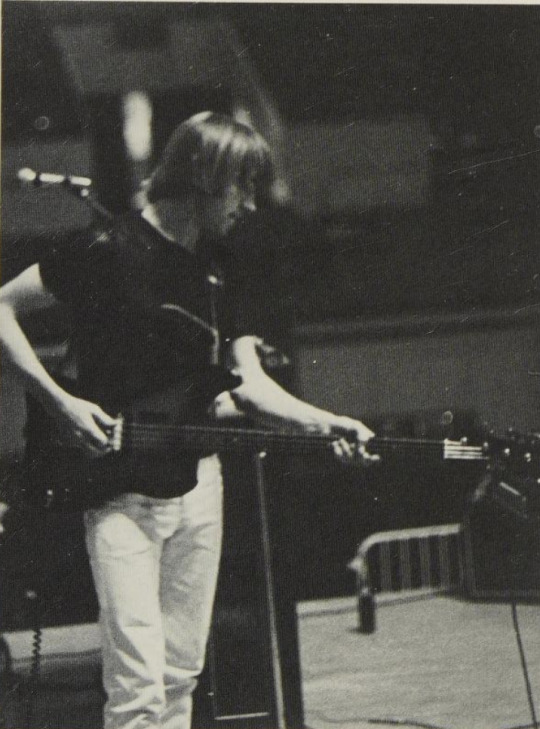

At Wembley for rehearsal and the concerts, June 30-July 2, 1967. Photo 1 by Bill Chadwick, photo 2 by Michael Putland.
“Certainly the best-produced pop-music presentation I’ve ever seen — that’s a summary of the Monkees in concert at the massive 10,000-seater Wembley Pool. Constant changes of costume from the boys, with color stills and movies shown on a huge screen, and a tremendous amount of verve and apparent improvisations from the four boys. But the noise from the fans was so tremendous that it was virtually impossible to judge exactly how good they are on their instruments. Even so, Mike Nesmith produced some frantic guitar sounds; Micky Dolenz hammered his drum with total abandon; Davy used maracas, tambourine, mini-organ and (once) bass; Peter Tork moved from bass to organ and back again. Vocally the boys were fine — in movement and style and sheer dynamic presence.” - Record Mirror (July 8, 1967) “Peter Tork seemed to be happy whether he was on organ, bass guitar or banjo.” - Beat Instrumental (August 1967) “It’s very flattering of you to say that my solo banjo piece at the Wembley show was one of the highlights. It’s a facet of me that I would like to flower — though I don’t know when it will.” - Peter Tork, Disc & Music Echo (January 13, 1968) Times: “You were my favorite Monkee. And I’ve been taking a poll with women today and you’re getting lots of votes.” Tork: “(laughs) I wear well, I think. But I was way down in the pack in the early days. I was always, like, third.” […] Times: “Everyone says you can tell about a person based on which is their favorite Beatle. If the same goes for Monkees fans, describe the person who likes Peter Tork.” Tork: “I think people who preferred Peter Tork to the others were people who did not know if they belonged in life or not. The other three as characters were so self-assured, you believed that they didn’t have a problem. If you saw yourself as having a problem with life, you probably went for the Peter Tork character. Offbeat. Not quite mainstream, somehow not quite in tune.” - St. Petersburg Times (June 23, 2000) Regarding the remark, “I was always, like, third”… in the UK, at least, that was apparently the case in 1967: “Thousands of votes [for the 'Most Popular Monkee' poll] are still pouring in, but at presstime the state-of-the-Monkees Poll was: Davy Jones — 53 per cent Micky Dolenz — 22 per cent Peter Tork — 8 per cent Mike Nesmith — 7 per cent” - Disc & Music Echo (April 22, 1967) …except for the results of a poll conducted by a reader… “With your help, I conducted a poll to find the most popular Monkee. Here are the results: 1. Davy Jones with 1,361 votes; 2. Peter Tork, 183; 3. Micky Dolenz, 129; 4. Mike Nesmith, 124.” — Marilyn Ventham […], Dagenham, Essex“ - Record Mirror (March 25, 1967)
#Peter Tork#Tork quotes#60s Tork#The Monkees#Monkees#long read#Tork reviews#Davy Jones#Micky Dolenz#Michael Nesmith#can you queue it
43 notes
·
View notes
Text




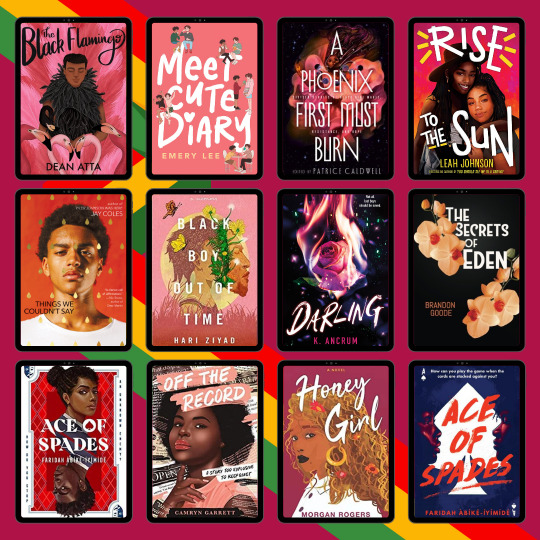




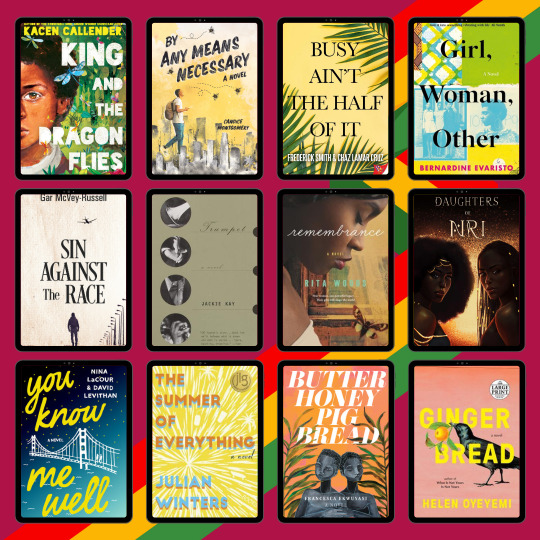
🖤 Black History Month ❤️
💛 Queer Books by Black Authors 💚
[ List Under the Cut ]
🖤 Felix Ever After by Kacen Callender ❤️ Under the Udala Trees by Chinelo Okparanta 💛 Warrior of the Wind by Suyi Davies Okungbowa 💚 I'm a Wild Seed by Sharon Lee De La Cruz 🖤 Real Life by Brandon Taylor ❤️ Ruthless Pamela Jean by Carol Denise Mitchell 💛 The Unbroken by C.L. Clark 💚 Labyrinth Lost by Zoraida Córdova 🖤 Skin Deep Magic by Craig Laurance Gidney ❤️ The Death of Vivek Oji by Akwaeke Emezi 💛 That Could Be Enough by Alyssa Cole 💚Work for It by Talia Hibbert
🖤 All Boys Aren't Blue by George M. Johnson ❤️ The Deep by Rivers Solomon 💛 How to Be Remy Cameron by Julian Winters 💚 Running With Lions by Julian Winters 🖤 Right Where I Left You by Julian Winters ❤️ This Is Kind of an Epic Love Story by Kacen Callender 💛 The Weight of the Stars by K. Ancrum 💚 This Is What It Feels Like by Rebecca Barrow 🖤 Son of the Storm by Suyi Davies Okungbowa ❤️ Black Boy Joy by Kwame Mbalia 💛 Legendborn by Tracy Deonn 💚 The Wicker King by K. Ancrum
🖤 Pet by Akwaeke Emezi ❤️ You Should See Me in a Crown by Leah Johnson 💛 Once Ghosted, Twice Shy by Alyssa Cole 💚 Cinderella Is Dead by Kalynn Bayron 🖤 Let's Talk About Love by Claire Kann ❤️ A Spectral Hue by Craig Laurance Gidney 💛 Power & Magic by Joamette Gil 💚 The Black Veins by Ashia Monet 🖤 Treasure by Rebekah Weatherspoon ❤️ The Sound of Stars by Alechia Dow 💛 Black Leopard, Red Wolf by Marlon James 💚 Full Disclosure by Camryn Garrett
🖤 The Black Flamingo by Dean Atta ❤️ Meet Cute Diary by Emery Lee 💛 A Phoenix First Must Burn (edited) by Patrice Caldwell 💚 Rise to the Sun by Leah Johnson 🖤 Things We Couldn't Say by Jay Coles ❤️ Black Boy Out of Time by Hari Ziyad 💛 Darling by K. Ancrum 💚 The Secrets of Eden by Brandon Goode 🖤 Ace of Spades by Faridah Àbíké-Íyímídé ❤️ Off the Record by Camryn Garrett 💛 Honey Girl by Morgan Rogers 💚 Ace of Spades by Faridah Àbíké-Íyímídé
🖤 How to Dispatch a Human by Stephanie Andrea Allen ❤️ Black Girl, Call Home by Jasmine Mans 💛 The Essential June Jordan (edited) by Jan Heller Levi and Christoph Keller 💚 A Master of Djinn by P. Djèlí Clark 🖤 A Blade So Black by L.L. McKinney ❤️ Clap When You Land by Elizabeth Acevedo 💛 Dread Nation by Justina Ireland 💚 Punch Me Up to the Gods by Brian Broome 🖤 Masquerade by Anne Shade ❤️ One of the Good Ones by Maika Moulite & Maritza Moulite 💛 Soulstar by C.L. Polk 💚 100 Boyfriends by Brontez Purnell
🖤 Hurricane Child by Kacen Callender ❤️ Quietly Hostile by Samantha Irby 💛 Coffee Will Make You Black by April Sinclair 💚 The Death of Vivek Oji by Akwaeke Emezi 🖤 If It Makes You Happy by Claire Kann ❤️ Sweethand by N.G. Peltier 💛 This Poison Heart by Kalynn Bayron 💚 Better Off Red by Rebekah Weatherspoon 🖤 Friday I’m in Love by Camryn Garrett ❤️ Rainbow Milk by Paul Mendez 💛 Memorial by Bryan Washington 💚 Patsy by Nicole Y. Dennis-Benn
🖤 Sorrowland by Rivers Solomon ❤️ How to Find a Princess by Alyssa Cole 💛 Yesterday is History by Kosoko Jackosn 💚 Mouths of Rain (edited) by Briona Simone Jones 🖤 Dead Dead Girls by Nekesa Afia ❤️ Love's Divine by Ava Freeman 💛 The Prophets by Robert Jones Jr 💚 Odd One Out by Nic Stone 🖤 Symbiosis by Nicky Drayden ❤️ Thanks a Lot, Universe by Chad Lucas 💛 The Passing Playbook by Isaac Fitzsimons 💚 Giovanni’s Room by James Baldwin
🖤 Little & Lion by Brandy Colbert ❤️ My Government Means to Kill Me by Rasheed Newson 💛 Pleasure and Spice by Fiona Zedde 💚 No Gods, No Monsters by Cadwell Turnbull 🖤 The Stars and the Blackness Between Them by Junauda Petrus ❤️ Filthy Animals by Brandon Taylor 💛 The City We Became by N.K. Jemisin 💚 Peaces by Helen Oyeyem 🖤 The Beauty That Remains by Ashley Woodfolk ❤️ Every Body Looking by Candice Iloh 💛 Bingo Love by Tee Franklin, Jenn St-Onge, Joy San 💚 The Heart Does Not Bend by Makeda Silvera
🖤 King and the Dragonflies by Kacen Callender ❤️ By Any Means Necessary by Candice Montgomery 💛 Busy Ain't the Half of It by Frederick Smith & Chaz Lamar Cruz 💚 Girl, Woman, Other by Bernardine Evaristo 🖤 Sin Against the Race by Gar McVey-Russell ❤️ Trumpet by Jackie Kay 💛 Remembrance by Rita Woods 💚 Daughters of Nri by Reni K. Amayo 🖤 You Know Me Well by Nina LaCour ❤️ The Summer of Everything by Julian Winters 💛 Butter Honey Pig Bread by Francesca Ekwuyasi 💚 Gingerbread by Helen Oyeyem
#black history month#queer romance#queer books#queer community#queer#book list#book blog#booklr#bookstagram#book lovers#book reader#book reading#books to read#reading#batty about books#battyaboutbooks
385 notes
·
View notes
Text
Cecile Richards, a prominent advocate for women's rights and other progressive causes, died Monday. In a statement, her family confirmed her death, saying she passed away at home, "surrounded by family and her ever-loyal dog, Ollie."
"Our hearts are broken today but no words can do justice to the joy she brought to our lives," the statement said.
Richards was best known for her work leading Planned Parenthood through a particularly challenging time which included threats to its funding and the first election of Donald Trump to the presidency.
During more than a decade at the helm of Planned Parenthood, Richards was often called upon to defend the reproductive health organization against attacks from political opponents.She and her movement faced mounting challenges after Trump, who ran for President in 2016 on a promise to overturn the landmark abortion rights decision Roe v. Wade, was first elected.
At the Women's March in Washington the day after Trump's inauguration in 2017, Richards addressed thousands of marchers and promised to fight his policies.
"Today we're here to deliver a message: we're not gonna take this lying down, and we will not go back," Richards told the crowd.
The next year, Richards announced she was leaving Planned Parenthood. After leaving the organization, Richards focused her efforts on leading Supermajority, a group she'd co-founded to mobilize female voters.
In the years to come, the Trump administration would take steps designed to reduce access to abortion, including cutting off funds for groups that make abortion referrals, like Planned Parenthood, through an overhaul of the Title X family planning program.
Over the course of his first term, Trump named three conservative justices to the Supreme Court, who, in June of 2022, would ultimately vote to overturn decades of abortion-rights precedent.
Despite setbacks for the abortion rights movement and a diagnosis of brain cancer, Richards embodied an "indefatigable" determination, says former Texas State Sen. Wendy Davis.
"Her belief [was] you can't give up before you even start, and that it's always worth a fight," Davis said.
Davis worked closely with Richards during a high-profile battle to defeat an anti-abortion bill in Texas in 2013. Now a senior advisor to Planned Parenthood Texas Votes, the group's political arm in Texas, Davis says Richards still inspires her to keep fighting.
"You want to give in to the weariness and give in to just giving up," Davis said. "When I'm tempted to feel that way, I think about Cecile, and I know a lot of people do."
Richards herself drew inspiration from the legacy of her mother, the late Texas Gov. Ann Richards, who was known for her sharp wit and down-to-earth demeanor.
During a hearing before the House Committee on Oversight and Government Reform in 2015, a male lawmaker asked her if she expected the committee "to be easier on you because you're a woman?"
"Absolutely not," Richards responded. "That's not how my mama raised me."
The hearing stemmed from the release of secretly-recorded videos by the Center for Medical Progress, an anti-abortion group that accused Planned Parenthood of selling fetal body parts. Planned Parenthood said the sting videos were edited to be deliberately misleading.
Dr. Colleen McNicholas, Chief Medical Officer at Planned Parenthood Great Rivers in the St. Louis area, knew Richards for more than a decade through their advocacy for abortion rights.
"I think she really changed the way that the movement engaged publicly; she was a very visible and bold presence," McNicholas says. "She wasn't afraid to take questions, to say the word 'abortion.'"
Washington Sen. Patty Murray, a Democrat with a long history of advocacy for reproductive rights, credits Richards with an instrumental role in making sure the Affordable Care Act, which passed under President Barack Obama, included contraceptive coverage.
Murray says despite the setbacks the movement has faced in recent years, she sees Richards as an example of continuing to fight.
"I would take what Cecile has done in her lifetime and use it as a charge to all of us now: you move forward, you fight for what you believe in, you have the courage to stand up and say what is right," Murray says. "You take those setbacks, learn from them, and move forward, and she's always done that."
In an Instagram post in January 2024, months after her cancer diagnosis, Richards described going through a whirlwind of treatments, time with family, and focusing on what was most important — including her continued activism.
"After all," Richards wrote, "as my mother used to say: 'Why should your life be just about you?'"
As her health continued to decline, Richards addressed the 2024 Democratic National Convention.
She spoke of the joy of recently becoming a grandmother, and the challenges many women have faced since the overturning of Roe v. Wade.
"One day, our children and grandchildren may ask us, 'When it was all on the line, what did you do?' And the only acceptable answer is, everything we could," Richards said.
In November 2024, President Joe Biden honored Cecile Richards with the Presidential Medal of Freedom during a private ceremony at the White House. In a statement, Biden praised Richards for her "absolute courage and conviction" and "an inspiring legacy that endures in her incredible family, the countless lives she has made better, and a Nation seeking the light of equality, justice, and freedom."
82 notes
·
View notes
Text
“I love the people on this stage. This is the best band that I have ever, ever worked with, and I don’t even- like they’re too good for me to be honest. In all seriousness, these guys could go off and do whatever the fuck they wanted, they’ve already ruled- Joe’s been writing songs recently which sound fucking amazing, literally! Tom Ungerer on the bass, everybody. Drew Michael on the drums. On the saxophone, Johnny ‘Bluehat’ Davis. On the trumpet, Mark Webb. On BVs, guitar, keys — Queen of South Shields — Brooke Bentham. On keys, synths, guitars, and a bit of shout, Joe Atkinson. Last, but certainly not least, my best mate on guitar, Dean Thompson. We have been Take That!”
— Sam Fender introduces the band at St James Park N1 on 12th June 2025 (x)
#did he say shout? we couldn’t tell#he’s so silly#sam fender#pw tour st james park#pw tour sjp#st james park#pw tour sjp1#pw tour speeches#sam fender & band#sfband
14 notes
·
View notes
Text
2025 books read thread
2025 goal: 150 books key: ✨ (arc), 💜 (reread), 📖 (physical copy), 💻 (ebook), 🎧 (audiobook), 📚 (multiple formats)
january: 1) a sea of unspoken things → adrienne young (✨ 💻 ) 2) funny story → emily henry (💜📖) 3) yin yang love song → lauren kung jessen (✨ 💻 ) 4) i am not jessica chen → ann liang (✨ 💻 ) 5) the doll's house → lisa unger (💻 ) 6) darkly → marisha pessl (🎧) 7) night of the mannequins → stephen graham jones (🎧) 8) here lives a vengeful bitch → codie crowley (💻 ) 9) my darling dreadful thing → johanna van veen (📖) 10) plain bad heroines → emily m. danforth (🎧) 11) lies on the serpent's tongue → kate pearsall (💻 ) 12) bloom → delilah s. dawson (💻 ) 13) a dark and drowning tide → allison saft (📚) 14) the kamogawa food detectives → hisashi kashiwai (translated by jesse kirkwood) (🎧) 15) the restaurant of lost recipes → hisashi kashiwai (translated by jesse kirkwood) (🎧) 16) the empress of salt and fortune → nghi vo (📖)
february: 17) sea of tranquility → emily st. john mandel (📚) 18) done and dusted → lyla sage (📖) 19) needy little things → channelle desamours (✨ 💻 ) 20) a killing cold → kate alice marshall (📖) 21) society of lies → lauren ling brown (🎧) 22) the final act of juliette willoughby → ellery lloyd (💻 ) 23) the fall risk → abby jimenez (✨ 💻 ) 24) freedom is a constant struggle: ferguson, palestine and the foundations of a movement → angela y. davis (💻 ) 25) water moon → samantha sotto yambao (📖) 26) the reformatory → tananarive due (🎧) 27) swift and saddled → lyla sage (📖) 28) lost and lassoed → lyla sage (📖) 29) the lovers → rebekah faubion (🎧) 30) victorian psycho → virginia feito (🎧) 31) a daughter of fair verona → christina dodd (📖)
march: 32) i am made of death → kelly andrew (✨ 💻 ) 33) ready or not → cara bastone (🎧) 34) they bloom at night → trang thanh tran (📖) 35) deep end → ali hazelwood (🎧) 36) lovely dark and deep → elisa a. bonnin (✨ 💻 ) 37) for the record → emma lord (✨ 💻 ) 38) if i stopped haunting you → colby wilkens (💻 ) 39) patron saints of nothing → randy ribay (🎧) 40) sunrise on the reaping → suzanne collins (📖) 41) first-time caller → b.k. borison (🎧) 42) you between the lines → katie naymon (🎧) 43) gifted & talented → olivie blake (✨ 💻 )
april: 44) this book will bury me → ashley winstead (🎧) 45) how to solve your own murder → kristen perrin (📖) 46) the strawberry patch pancake house → laurie gilmore (📖) 47) the hunger games → suzanne collins (💜📖) 48) wild and wrangled → lyla sage (📖) 49) the decagon house murders → yukito ayatsuji (translated by ho-ling wong) (🎧) 50) manslaughter park → tirzah price (🎧) 51) what dreams may come → christina dodd (💻 ) 52) thus with a kiss i die → christina dodd (✨ 💻 ) 53) the wolves → sarah delappe (📖)
may: 54) the manor of dreams → christina li (✨ 💻 ) 55) the river has roots → amal el-mohtar (🎧) 56) meet your baker → ellie alexander (💻 ) 57) the body in the bookstore → ellie alexander (🎧) 58) a murder at the movies → ellie alexander (🎧) 59) death at the dinner party → ellie alexander (🎧) 60) a holiday homicide → ellie alexander (🎧) 61) a victim at valentine's → ellie alexander (🎧) 62) a body at the book fair → ellie alexander (✨ 💻 ) 63) natural beautiful → ling ling huang (🎧) 64) smile and be a villain → yves donlon (📖) 65) the summer i turned pretty → jenny han (💜💻) 66) next to normal → brian yorkey (💜📖) 67) the bandit queens → parini shroff (📖) 68) the boy you always wanted → michelle quach (📖) 69) a batter of life and death → ellie alexander (💻 ) 70) on thin icing → ellie alexander (💻 ) 71) caught bread handed → ellie alexander (🎧) 72) fudge and jury → ellie alexander (💻 )
june: 73) the crucible → arthur miller (💜💻) 74) john proctor is the villain → kimberly belflower (📖) 75) eureka day → jonathan spector (📖) 76) english → sanaz toossi (📖) 77) the hills of california → jez butterworth (📖) 78) "oh, mary!" → cole escola (📖) 79) our town → thornton wilder (💜📖) 80) ohio state murders → adrienne kennedy (📖) 81) shakespeare's sister → emma whipday (📖) 82) ms. holmes & ms. watson - apt. 2b → kate hamill (📖) 83) medusa undone → bella poynton (📖) 84) the cottage → sandy rustin (📖) 85) choir boy → tarell alvin mccraney (📖) 86) it's not summer without you → (💜💻) 87) witch → jen silverman (📖) 88) gwen & art are not in love → lex croucher (🎧) 89) significant other → joshua harmon (📖) 90) enter the body (play version) → joy mccullough (💻 ) 91) the butcher's daughter: the hitherto untold story of mrs. lovett → corinne leigh clark and david demchuk (💻 ) 92) merrily we roll along → george s. kaufman and miss hart (📖) 93) shakespeare's r&j → joe calarco (📖) 94) an ideal husband → oscar wilde (📖) 95) what the constitution means to me → heidi schreck (📖) 96) m. butterfly (2017 revision) → david henry hwang (📖) 97) speech & debate → stephen karam (📖) 98) the flick → annie baker (📖) 99) macbitches → sophie mcintosh (💻 ) 100) romeo and juliet walk into a bar → john maclay and joe foust (💻 ) 101) the secret love life of ophelia → steven berkoff (💻 ) 102) arsenic and old lace → joseph kesselring (📖) 103) the book of will → lauren gunderson (📖) 104) kill creatures → rory power (💻 ) 105) station eleven → emily st. john mandel (📚) 106) i wanna fuck like romeo and juliet → andrew rincón (📖) 107) i who have never known men → jacqueline harpman (translated by ros schwartz) → (📚) 108) prima facie → suzie miller (📖) 109) party of liars → kelsey cox (✨ 💻 )
july: 110) not quite dead yet → holly jackson (✨ 💻 ) 111) ring shout → p. djèlí clark (💻 ) 112) the bad ones → melissa albert (🎧) 113) eat the ones you love → sarah maria griffin (📖)
33 notes
·
View notes
Text
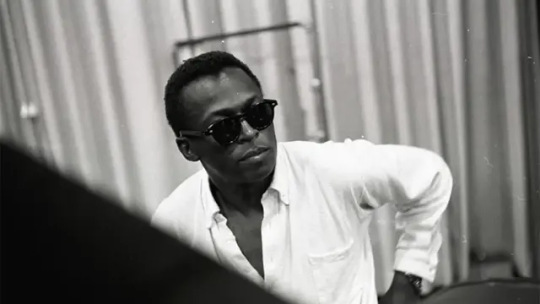
Miles Davis - Jazz Villa, St. Louis, Missouri, May/June 1963
Posting through the panic? Yeah, I guess. As the country I call home chooses fear, nihilism and chaos once again — again! — I have to find solace in music ... somehow. At the moment, I truly have no idea what else to do.
So there's a fresh Miles Davis Bootleg Series coming out any minute now, which gathers several discs of live performances in France from 1963 and 1964, when Miles was getting together with younger musicians like Tony Williams, Herbie Hancock, Ron Carter, George Coleman, expanding and exploring his signature sound. There's plenty of stuff from this era around, of course, but it's always a pleasure to hear it cleaned up and presented in a way befitting of these sterling, still exciting performances.
As an addendum, check out Davis, Williams, Hancock and Coleman in their first extant live recording, an audience tape made just a couple weeks before they'd head out to Europe for a series of festival dates. The Jazz Villa! Sounds nice, right? This collection of musicians hadn't been together long, but they seem have already gelled, spurring their leader on to some seriously soaring heights. The MVP, however, might be Coleman, who — once Shorter solidified the Second Great Quintet's lineup — might not get his due these days. But his solos are all fantastic, curious and inventive and lively, especially on the killer "All Blues." A song for today, a song for every day for the foreseeable future! ALL BLUES.
27 notes
·
View notes
Text
ALL OCPAA DANCES 24-25 SZN
SOLOS:
• Elizabeth Leiter - A Thousand Years
• Hannah Wright - Zombies
• Kennedy Bush - Halo, Salute
• McKinleigh Beck - Young And Beautiful, Hound Dog
• Mila Garg - Yellow, Eye Sore
• Lennox Silva - Pretty Bird, See Me Now
• Hadley Berokoff- The Dance, Nobody Loves Me Like You Do
• Amaya Reyes - Countdown
• Gianna Salloum- Glam
• Evelyn Yao - Take Off
• Kimiko Evans - Future Husband
• Piper Brown - Weird People
• Kayla Turner- Gimmick
• Erin Thorton - Vienna
• Michele Lam - Complex
• Hope Edwards - Gospeed
• Jasmine Sison - United In Grief
• Emalene Heitz - Enough For You
• Emily Thorton - Let The Light In
• Gwendolyn Morrison - 1+1
• Shab Ghaffari- White Blank Page, Say My Name
• Adelynn Kim - Perfect
• Dani Parkin - Star Wars
• Hayden Peterson - Thousand Years
• London Dahlberg - Go The Distance
• Chloe Lapka - Over The Rainbow
• Melody Novin - Safe & Sound
• Emmalyn Dahlberg- Forget About The Boy
• Parker Seymour- Amayzing Mayzie
• Alexis Fogg - Whistle While You Work It
• Elise Tapia - Queen Of The Night
• Olivia Montano - Word Up
• Scarlett Sanderson - Off With Your Head
• Victoria Valdez - Sushi
• Ava Reyes - Kill The Lights
• Addison Berger - Legs
• Mocai Li - Who Do You Think You Are
• Kaia Huener - Bad Romance
• Remi Rodriguez- Faithfully
• Taylor Goldweski- Remembering You, We Clappin'
• Aria Reyes - Moon River
• Kaylee Kim - The Scientist
• Charlotte Delong - Elegance
• Kensington Beck - Remember Us, Push Da Button
• Charlotte Wolk - Goodbye, Too Darn Hot
• Kailee Lozano - Halleluiah
• Mya McCarty- Hot Note, Fix You
• Ella Strunz - Lola
• Kourtney Gampol- My Discarded Men, Eternal Mourning
• Sydney Jhonson- St Jude, Single Ladies
• Eden Roberts- Speaking, All That Jazz
• Charlotte Howerton- If This Is It Now, Hit The Road
• Claire Christensen - Carousel
• Peyton Kleveno - Lost, Hollaback Girl
• Dylan Reuss - The Waitress, Bang Bang
• Leighton Goldweski- Once Upon Another Time, Vertstand
• Harper Cruz - Waking Up Slow, Word Up
• Sofia Valdez - Joy
• Kyle Young- Still, Catch Me Now
• Avery Sison - Freddy
• Brooklyn Guerrero- Here I Come
• Julia Omana - Do What I Do
• Sasha Kokos - Run The World
• Sloane Schuster- How I Feel
• Avery Strutman - Manicure
• Zoe Vicencia- All These Boys
• June Khoury- Ain't No Other
• Kinsley Coleman - Man's World
• Sophia Lycett - Boots
• Demi Ascencio - Crazy In Love
• Avery Wilkinson - He's A Dream
• Jolee Omana - Mama Knows Best
• Malia Drown - Toxic
• Noelle Khoury - Swing
• Makena Dowlatshahi - Fever
• Imani Moss-Byas - Collapse
• Holland Cooper- Who I Am, Mein Herr
• Sofia Wierzucki - Sorry
• Raelyn Abesmier - May It Be
• Alyssa Mastroianni- Broken Vow, Hyperballad
• Lilliana Mastroianni- Open Hands
• Ashley Issa - Ocean In Gold
• Brooklyn Huber - Dynamite
• Cerys Gogswell- My Darling, Think Pink
• Ghandom Ghaffari - See Me In A Crown
• Makenzie Rowland - Elephants
• Olivia Lycett - Build It Up, Yummy
• Brinley Lowe - Eclipse, Extra Extra
• Alia Benavides- I Miss You
• Ariel Lantz Loza - I Love You
• Jillian Mahan- True Romance, Clumsy
• Maggie Zhou- Only, Bitter
• Grace Howerton- I'm Through
• Londyn Nevois - Islands
• Riley Stem - Gardens, Queen Bee
• Jayna Omana - Hot Like Wow
• Taylor Jhonson - End Of Time
• Aaliyah Ortiz- Fight Em Off
• Harlee Lozano - Make Me Feel
• Liana Sison - Pocketbook
• Morgan Turner- Eating The Runway
• Olive Tapia - Dangerous
• Natalya Kokos - Rosalia
• Fryad Ghaffari- Hotline Bling
• Milea Hill- Jet Black
• Allison Arteaga - Dream, Let It Roll
• Kalin Dowlatshahi - Everywhere I Go
• Savy Jean Witeck - Bird Once Free, Walk
• Keira Davis - Every Breath You Take
• Andrea Valdez - Dancing After Death, Alien Superstar
• Madison Clegg - A Little Less Conversation
• Gianna De Lancellotti - New York New York
• Wynter Williams - Rotten To The Core
• Nyla Burton - Spoonful Of Sugar
• Keira Simon - Silent Night
• Georgia Dahl - A Whole New World
• Ava Ricker - I Will Always Love You
• Koko Fletcher - Just Wanna Have Fun
• Reagan Gold - My Heart
• Bailey Chalmers - Tears In Heaven
• Chloe Christensen - True Colors
• Charlotte Dahlberg- Halo
• Everly BeSerra - Demons
• Harper Bridge - Sweet Child Of Mine
• Mila Chaandraga - This Is Me
• Sienna York - Dancing Queen
• Skylar Schuster- Butterfly Kisses
• Beaya To - Lollipop
• Shyla Zalishahr - Wind It Up
• Annabelle Bright - Ice Cream Freeze
• Camila Valdez - Rich Girl
• Ellie Dahl - Thriller
• Jordyn Omana - Can't Touch This
• Lyla Valencia - I'm A Lady
• Preslee Liberio - It's Britney Spears
• Madison Worth - Skinny Love
• Natalia Seffer - On My Own
• Kate Cooper - Shallow
• Melinda Tang - Keep Breathing
• Paige Witcomb - Vampire
• Fiona Pathack - Elephant In The Room, Don't Wanna Dance Alone
• Avery Waters - A World Of Your Own
• Lydia Tuttle - Six Feet Under
• Mia Gonzalez- Paint It Black
• Peyton Brown - Stay, Feeling Good
• Siena Jensen - Sirens
• Dakota Valentine - Covergirl
• Sadie Ransom - Breaking Dishes
• Sadie Ferguson- London Bridge, You Are So Beautiful
• Wednesday Krocock - Work Work
DUETS/TRIOS:
• Ava Reyes, Amaya Reyes - Janet
• Hayden Peterson, Olivia Montano, Parker Seymour - Holly Rock
• Dani Parkin, Melody Novin, Rowan Caputo - Tea Party
• Camille Christensen, Preston Whitcomb - Attention
• Kaia Hueners, Lyla Valencia, Peyton Bonachea - I Got A Crush
• Alexis Fogg, Kiera Simon, Mila Chandaragga - Girl Scouts
• Monroe Lundberg, Raelyn Chavarria - Tootsie Roll
• Raegen Gold, Skylar Schuster - California Girls
• Charlotte Dahlberg, Everly BeSerra, Sienna York - Candyman
• Mila Chandaragga, Soren Karpow - Itsy Bitsy Spider
• Bailey Chalmers, Kiera Simon - Itsy Bitsy Spider
• Chloe Christensen, Harper Bridge, Preslee Marie Liberio - Jailhouse Rock
• Brooke Petropulos, Charlotte Smith, Sage Payne - Shake The Room
GROUPS:
• Hot Line
• Amen
• Torture
• Tomorrow
• Call Me Mother
• Boogie
• Devil With A Blue Dress
• Heart Is Open
• Supermodel
• Push It
• Rock Your Soul
• I Love You
• Tears Of An Angel
• Fruit Salad
• Love Story
• Wish Upon A Star
• Betty Boop
• It's A Small World
• Dream On
• OC Outlaws
• Personality
• You Will Be Found
• ABC
• Hey Mickey
• Double Dutch Bus
• Home On The Range
• Applause
• Strawberry Shortcake
• Diamonds
• The Beach Girls
• Speaking French
• Fields Of Gold
• Not About Angels
• Barbie
• Wondeful World
• Seven Devils
• So Groovy
• Pink Friday
• A Little Party
• One Way
• Foolish Men
• Where's My Love
• Starstruck
• Heartburn
• Girl Like
• Hummed Low
• IT GIRL
• Don Juan
• Von Dutch
• And So It Is
• Bloom
• Hide And Seek
• Money
• The Show
• Raincatchers
• Mannequin
• The Chain
• Level Up
• Moving Blind
• In This Shirt
• Writer In The Dark
• Ode To Divorce
• Smack Down
• Caution
• Blowin' In The Wind
• OC Airlines
• Strict Machine
• Never Love Again
• Can't Catch Me Now
• Slither
7 notes
·
View notes
Text
Court Circular | 11th June 2024
St James’s Palace
The Princess Royal this morning opened Mercator Media Limited’s Twenty Fifth Anniversary Seawork Marine Exhibition at Mayflower Park, Southampton, and was received by His Majesty’s Lord-Lieutenant of Hampshire (Mr Nigel Atkinson).
Her Royal Highness, Patron, British Nutrition Foundation, this afternoon visited the British Armed Forces Nutrition Programme at The Royal Logistic Corps Regimental Museum, Connaught Road, Kings Worthy, Worthy Down, Winchester, and was received by Lieutenant General Sir Mark Mans (Deputy Lieutenant of Hampshire).
The Princess Royal, Patron, Farms for City Children, and Past Master, Worshipful Company of Butchers, later attended a Festival of Learning at Butchers’ Hall, 87 Bartholomew Close, London EC1.
The Princess Royal, Royal Fellow, the Royal Academy of Engineering, accompanied by Vice Admiral Sir Tim Laurence, this evening attended The Prince Philip Fund Commemoration Dinner at Prince Philip House, 3 Carlton House Terrace, London SW1, and was received by Colonel Jane Davis (Vice Lord-Lieutenant of Greater London).
21 notes
·
View notes
Text
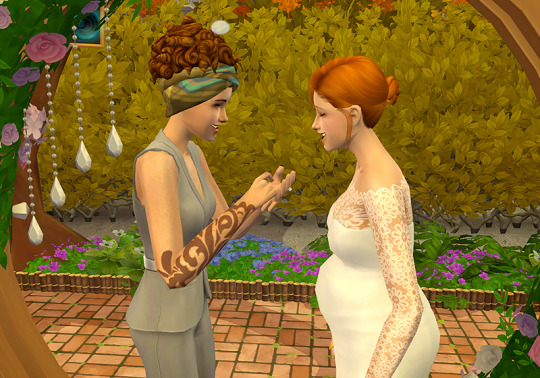
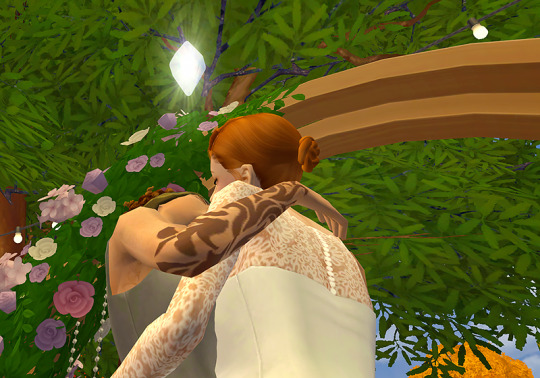
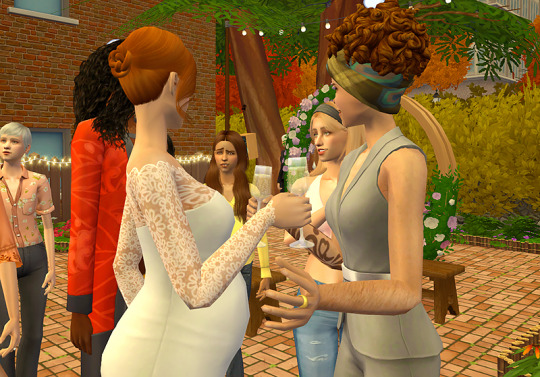


There's no time to waste! After a quick makeover, the two have an intimate ceremony downtown. June wears a sleeveless pantsuit and Bettina leans more traditional white. Bettina takes June's last name, making her Bettina St. Davis now. (née Lafontaine)
#ts2#sims 2#sims 2 gameplay#windflower bay#snapdragoned#round 11: st. davis#june st. davis#parker st. davis#bettina st. davis#bettina lafontaine
24 notes
·
View notes
Text
⋆ ˚。⋆୨୧˚ a residue series installment ˚୨୧⋆。˚ ⋆
from the hive 🎙️🐝 : session 1
✎ elementary-teacher!reader (miss.honey) x biker!benny 🏍️



🐝 main hive | sweet talkin’ | honey, are you comin’? 🍯
summary: based off the two parts listed above, spoken from honey’s pov. some never before seen bonus tidbits included to be extended upon in future residue parts ;)
warnings: smoking, talks of violence, arson, potential stalking, some cursing here and there. nothing too crazy.
word count: idek tbh, i oddly wrote it in my tumblr drafts to get me inspired before writing the main residue installments.
💌 requests are open, send ‘em honey 💋
↻ ◁ || ▷
↺ ���︎•၊၊||၊|။||||။၊|။•
honey: “y’want some honey in your tea?”
danny: “sure, thanks.”
[ a clanking sounds of what must be a spoon is heard in the background of the recording ]
honey: “anytime, sweets.”
danny: “wait, i’ve seen this before.”
honey: “huh?”
danny: “this company. isn’t that — wait that’s your last name ain’t it?”
honey: “yeah, my pa’s a bee keeper. ma jars the honey with some top secret ingredient that’s got the town buzzin’. whole family business.”
danny: “ah, no wonder you got that nickname.”
honey: “yep, since the womb.”
danny: “interestin’. did benny know that when he met ya?”
honey: “hm…not that i know of. might of. if he didn’t, m’sure johnny must of told him.”
danny: “how’d you meet benny then?”
honey: “how’d i meet benny?”
danny: “yeah.”
honey: “well…you know, i was just mindin’ my own business. working a regular school day at the elementary school on phipps. i was teaching the third grade at the time and johnny’s girls just so happened to be in my class. the main office sent me a note in the middle of the day informing me that the girls would be picked up by their uncle benny. i didn’t think too much of it at the time, hey it wasn’t unusual for kids to be picked up by extended family members, y’know? but i guess i — i had this vision of what he’d be like. fucked up i know, but ya see, i knew johnny. not in the way one would expect. [ honey laughs ] johnny was — well he was mr. davis to me, respectfully so, just like any parent would be to one of my students. but he was also the mr. davis i knew from mass at st. caron’s on the corner of rose and dawn. he’d be walkin’ around in a suit and tie, the whole get up, solemn as he ushered pew to pew with the collections basket for the poor and during communion on sundays 12pm sharp.
danny: “interesting. so i suspect you saw johnny rather often then?”
honey: “oh yeah, every week. went with my ma and pa all the time and like clock work he was there. such a clean cut dignified family man. so it was no surprise for me to be taken aback by benny’s appearance when he pulled up at the school yard.”
danny: “did he bring his bike?”
honey: “hell no! had johnny’s car. ‘twas a real trip with his colors on and a cigarette propped between those pillowly lips of his.”
danny: [ laughs ] “i can imagine. when was this exactly?”
honey: “oh it had to be close to the end of june, right before the start of the summer of ‘65. school was just about ending. had a week left or so. oh yeah — yeah, i remember cause it was real hot out too — sweltering heat, like that sticky kind that can only be equated to bein’ stuck in a classroom with a half broken fan. aw it was the worst. i had on this baby pink tank of sorts with thick straps under this overall dress i decked out a while back. it was real cute. had all these flowers and things i embroidered on it.
danny: “right, the embroidery. heard a thing or two about bedazzled patches on the vandal jackets.”
honey: “��course you did. the skill got me going with the boys. when sonny started riding with ‘em he let me bejewel the fringes of his jacket real pretty. always a good sport. but anyways — yeah so i had this cute little get up on and my hair was all up and out of my face, real messy for the 60s. kinda stuck out like a sore thumb at school, but what shits did i give?
danny: “none?”
honey: “damn right. so yeah, it was kind of funny when benny came strolling up to me, weaving through all the parents like a puzzle piece that didn’t quite fit one bit.”
danny: “what were your first impressions of him?”
honey: “i was impressed to say the least. only had my reservations for what — half a minute? yeah, i’d say a good thirty seconds before i was smiling up at him.”
danny: “did he scare you? scare any of the parents, other teachers?”
honey: “i wasn’t scared of him no…as for the others, sure. mrs. rubin was all this and that and the other thing ‘bout him after that, especially when it got more serious and he was waitin’ round the school. she didn’t appreciate the loitering, but he was harmless, as harmless as benny could be. though, i was more refreshed really to see somebody so interesting….so different from everybody else. it made me feel seen, y’know?”
danny: “so what happened next? when he got to you?”
honey: “he’s standin’ in front of me and i’m bein’ a good egg with both girls at my sides, small fingers wrapped around each hand, and i go ‘hi, you must be uncle benny. i’m miss. honey.’ and he takes a good minute to give me a once over, like introducing myself was the craziest thing i could of done. then that thick smokey voice of his went “honey, huh?” and my tummy rumbled up so much so i was sure the butterflies i stitched ripped right off and flew about my dress. [ honey laughs again ] i was kind of just like ‘yep, that’s me’ or whateva, and god i was so sure i fucked it all up.”
danny: “how come?”
honey: “anyone that knows benny knows he’s not a man of many words by any means, so at the time i took his silence as a sign of unimpression. i mean if you took a look at us two — and i mean a quick glance or somethin’, we definitely seemed like an odd pair. but if you really looked rather closely, takin’ the time to absorb every detail, i’d definitely say we were far more similar past the common eye. but, i’ll go into that later. [ honey pauses for a moment ] sorry did i answer the question?”
danny: “you did, you did.”
honey: “good, good….so where was i?”
danny: “you were talkin’ about introducing yourself to benny and him being unimpressed.”
honey: “right, so one of johnny’s girl starts gettin’ all antsy. wants to go. has herself practically all over benny in a beg. her sister — no. her sister doesn’t wanna. the little thing has her hand practically chain locked to mine. so i did what any teacher would do and sweet talked her into going.”
danny: “how’d you manage that?”
honey: “i reminded her that her pa was a good man. that his interests were just as important as her own. that was all it took really.”
danny: “did you still think that later on? still do? after everything?
honey: [ honey sighs and puts out a cigarette she’d been smoking throughout the session ] “i did and i still do. i know some people will say that johnny was no good, that his club only created chaos. really though, the johnny i knew was trying to keep the peace as my benny well — wasn’t. one wrong look in my direction and my man was jumping the fool in seconds flat. and if they got a hand on me, oh they’d have to have a death wish upon ‘em. benny would not stand for that. he’d make their life a livin’ hell for as long as they lived. johnny — no johnny wasn’t like that unless it was real bad. unless someone got real hurt, then he’d fight back.”
danny: “like the bar fire?”
honey: “exactly like the bar fire. sure, a part of me felt bad for the owner. that his establishment just went up in flames like that. but the other part of me was glad those fuckers couldn’t step foot in such a place no more. and on top of i was rather pissed off — still am — by the fact that the owner just let my benny get attacked like that. did nothing to stop it. boils my blood just thinking about it. just thinking about my sweet benny minding his business and gettin’ swarmed for just wearin’ his colors. colors that wouldn’t come off of him once i got my artsy hands on it. he was absolutely obsessin’ with the patches i made. especially the one that said “honey’s hubby” with a big ol’ heart. made my cheeks burn real bad when he’d kiss it before tossing it right back on.”
danny: “i remember seeing that.”
honey: “you do?!”
danny: “yeah, the times i rode with the guys. i caught ‘em doing it here and there. especially when he was ‘bout to mount his bike before a ride. figured it was some sort of good luck charm before i really took a good look at what the patch said. then i realized it was you.”
honey: “danny?”
danny: “what?”
honey: “you gotta stop or i’m gonna be gushin’ the whole rest of this interview without giving yuh the real stuff.”
danny: “alright, alright [ lyon laughs ] back to business. so, what happened after you got johnny’s girl to go with benny? when’d you see him again?”
honey: “funnily enough, ‘twas the very next day. saw him first in the mornin’ y’know at drop off. i figured he gave a ride to the girls again or somethin’ — but no. it was betty who did. she came right up to me that morning to say hello. the hell was i thinkin’? i mean benny had his whole bike on him. no shot in hell he’d bring the girls on it.”
danny: “sure.” [ sarcasm is apparent in lyon’s words ]
honey: “danny no! [ honey laughs ] benny was wild but not that wild. he’d never let anything happen to those girls.”
danny: “i know, i know. only jokin’. i’m assumin’ that’s what drew you to him though?”
honey: “it was definitely a solid factor.”
danny: “understandable. did you go talk to him, at drop off?”
honey: “no, no. I didn’t think too much of it at the time and i couldn’t go shoot the breeze with him anyways. the lot was packed with all these little ones. i had to roll call mine. it wasn’t until after lunch hour during recess that i did.”
danny: “he was still there then? never left?”
honey: “as far as i know, no. had a whole garden of cigarette buds circling his feet like he’d been there for hours.”
danny: “what’d you say when you approached him?”
honey: “said something about the girls not getting out for another few hours and then asked him if he was stalkin’ me off the bat. oh — he offered me a cigarette too, and i took it.”
danny: “ripped the bandage right off i see. how’d he take that?”
honey: “seemed amusin’ to him. he made one of those faces that had all his features turnin’ up real pretty. can never forget that. flat out told me he wasn’t which i found strangely adorable. then — i don’t really know how it happened, but he was changing the subject completely. y’know when you’re having a conversation and ya kind of just naturally switch topics easily, but it’s done so smoothy, like the segue isn’t rough or whatever?”
danny: “yeah, i know what y’mean. the previous topic is wedged in there somehow subtly, but it makes sense why you got there.”
honey: “exactly. but, benny. no — when benny was in the midst of a conversation and started going on about something else there was no ease there. yet, you’d be fooled to think so. that’s how he got us out of most arguments honestly. one minute i wouldn’t be too happy with him about somethin’. probably somethin’ stupid anyways. if not stupid, than definitely about him ridin’ with an injury. always got me nervous. but then of course the next he’d have me wrapped up in his embrace as if five minutes prior hadn’t happened. here, for instance though, i guess the transition kind of made sense? i mean i was goin’ on about my co-worker freaking out about him just parking ship near campus, blabbing about and he’s asking about what time i get out, and if i wanna go on a ride. now, i’m dumbfounded by this. cause what the hell does he want to do with me, y’know?”
danny: “so what did ya do? did ya go with him?”
honey: “what’a ya think, daniel?”
[ an unknown interruption cuts the session here, but lyon obtains all the information from honey he needs — for now, that is ;) ]
[ the tape ends ]
↻ ◁ || ▷
author’s note: hope ya liked this! i’m such a sucker for an interview writing style. daisy jones & the six is my favorite books ever if you can’t tell! <3
my requests are open for any miss honey x benny cross works + any convos about these two in general. don’t be shy honey, i’m all for yapping in the asks.
+ don’t forget to comment if you’d like be added to “da bee hive” (my version of da tag list)
smoochies. all da love xanadu 💋
da bee hive 🐝🍯
@nervousnerdwitch
@sunnbib
@rose-deathman
@austinbsblog
@thegabbyh
@jihyowrrld
@bellesdreamyprofile
@superemobitch
@m00npjm
@imusicaddict
@astrogrande
@alana4610
@cynic-spirit
@mariaenchanted
@themorriganisamonster
@real-lana-del-rey
@ateliefloresdaprimavera
@harryandhishairclip
@themorriganisamonster
@alexa4040
@returntopresley
@imladrisofabookdragon
@madisonmontgomeryxoxo
@zablife
@superstarcherrycolagirl
@nerdy-novelist017
@anqeliclust-recs
@imladrisofabookdragon
@slowsweetlove
#miss honey x benny cross#from the hive 🎙️🐝#benny cross fanfiction#the bikeriders fanfiction#danny the bikeriders#mike faist fanfic#austin butler fanfiction#johnny davis#tom hardy#benny cross x reader
206 notes
·
View notes
Text
Happy birthday and very best wishes to Micky!
“The Last Thing On My Mind,” featuring Peter (also on banjo) and Micky; from the Headquarters Super Deluxe Edition. Photos in this edit by Davy Jones.
“[Micky is a] brilliant, funny man.” - Peter Tork, The Morning Union, March 4, 1982 “[N]o one of us really supported any of the others except that, that I like to think that I tried to support Micky in a way which, for some reason, he never did pick up on. I mean, I think that Micky has a certain kind of genius that he was never able to acknowledge in himself.” - Peter Tork, Headquarters Radio, 1989 “I’ve always thought that Micky was far more creative than he ever gave himself credit for. He’s a vastly more talented individual than he’s aware of.” - Peter Tork, Headquarters 1995 liner notes “[Micky] is a wonder in some ways. He has a totally conventional, completely trailer trash, biker quality of sophistication and it's completely heartfelt. It's ironic and heartfelt, both. It's Micky's special gift.” - Peter Tork, St. Petersburg Times, June 2000 “I’m just delighted to be onstage with [Micky and his always great voice]. You know, that — that my fortunes are such that I’m allowed onstage with that is a true blessing in my world.” - Peter Tork, BBC WM, 2015 “Interacting with Micky onstage is just a joy." - Peter Tork, Rolling Stone, May 31, 2016
#Micky Dolenz#Peter Tork#Tork quotes#Tork banjo#Peter and Micky#60s Tork#80s Tork#90s Tork#00s Tork#10s Tork#Tork edits#can you queue it
29 notes
·
View notes
Text
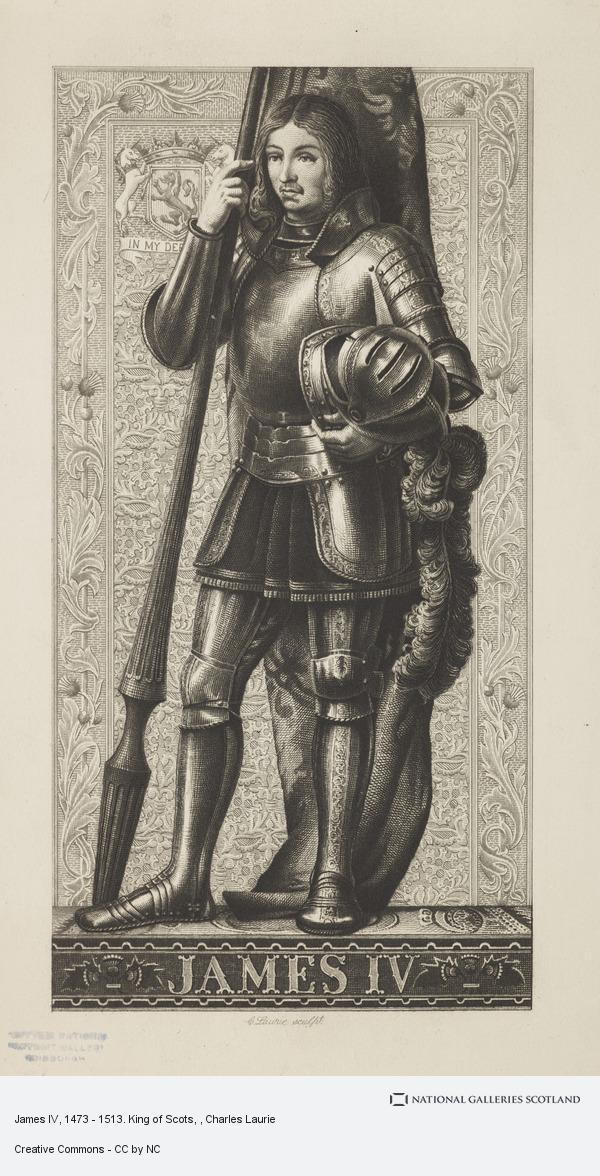
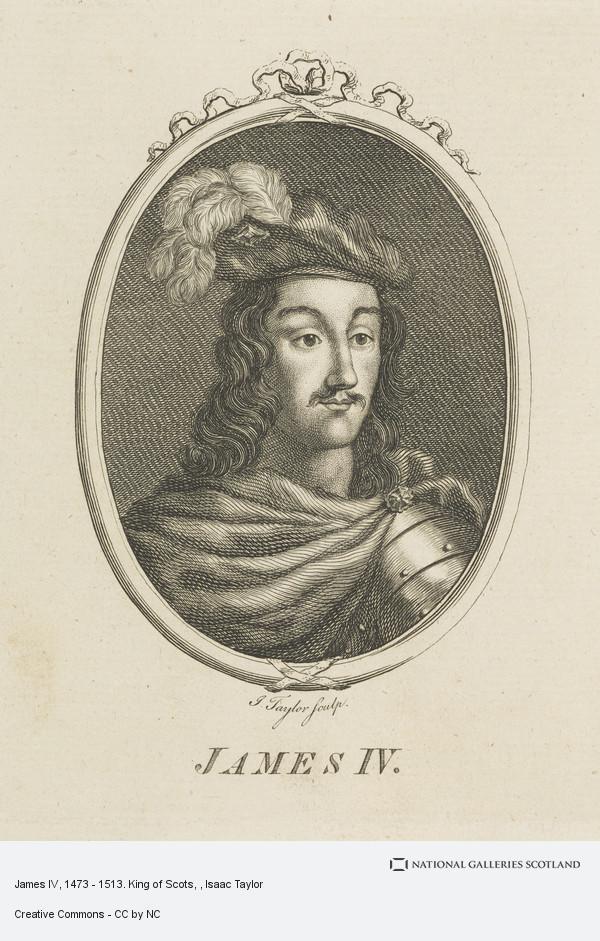
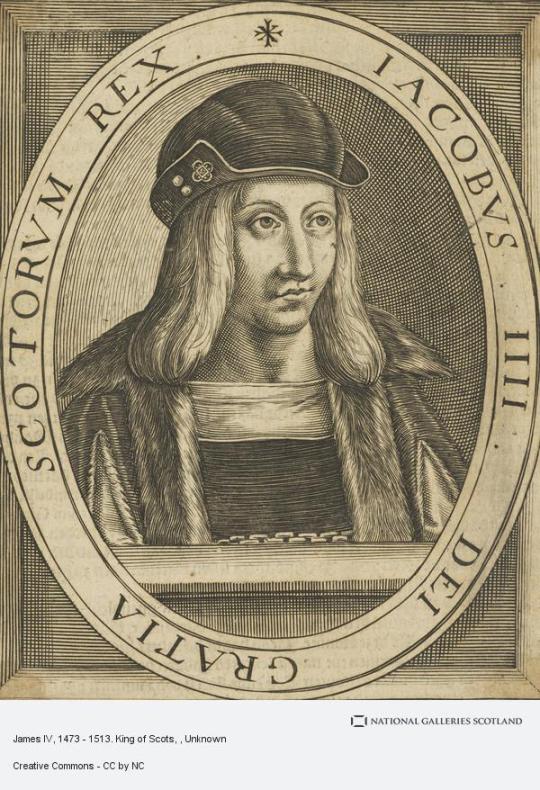
24th June 1488 saw the coronation at the age of 15 of King James IV arguably the first effective monarch of the House of Stewart.
Young James had been a pawn in the forces that had brought down his father, and was said to have warn an iron belt around his waist in penance.
James was a Renaissance King who spoke several languages including Gaelic, English and French and was keen on arts and learning. Aberdeen University was founded, the printing press came to Scotland and education was made compulsory for barons and wealthy landowners. He spent lavishly on the court and built new halls in Edinburgh and Stirling castles. Edinburgh became main burgh and centre of government and justice.
He successfully settled major feuds between his nobles and between the Highland clans, and ended the hold of the MacDonald who had semi-independently ruled the Western Isles. He supported the Yorkist pretender Perkin Warbeck which provoked a military response from his Henry VII of England. However this was patched up in a truce ‘of perpetual peace‘ in 1502, and his marriage to Margaret Tudor, daughter of Henry VII, in the following year was to ultimately bring the thrones of Scotland and England together.
By 1513 Henry VIII was on the throne of England and fighting in France. Encouraged by Louis XII of France under the ‘Auld Alliance’ James invaded England but the Scots were massacred by the English forces under the Earl of Surrey at the Battle of Flodden Field in Northumberland on 9 September 1513.
Like many of Scotland's nobility, James was killed, there have been many theories about what happened to his body the most likely outcome is after the battle it was taken to Berwick, where it was embalmed and placed in a lead coffin before being transported to London.
The recipient of this gory package was said to have been Catherine of Aragon, first wife of Henry VIII, and in charge of the family business while the English king fought in France.
She, in turn, sent the dead king's surcoat, blood-stained and slashed, to her husband with the recommendation that he use it as a war banner.
The body was left in the monastery of Sheen in Richmond upon Thames unburied due to James having been excommunicated by The Pope for breaking The Treaty of Perpetual Peace. The Monastry was eventually demolished, but nothing is known of what happened to our King.
Legend has it that the skull was removed and used as a football before the master glazier to Elizabeth I took it as a souvenir. Legend also has it that the skull was eventually handed over to the Great St. Michael's Church in Wood Street in the City of London and buried there. The church is long gone, as is the church yard, the latter now occupied by a pub by the name of the Red Herring.
David Ross, historian and convener of The Society of William Wallace must have believed this as he, along with some London friends, had plans to install a plaque to James IV somewhere in Wood Street London. Sadly, big Davie passed away unexpectedly before ambition was never realised.
Other unlikely theories go that James had survived and had gone into exile, or that his body was buried in Scotland. Two castles in the Scottish Borders are claimed as his resting place. The legend ran that, before the Scots charge at Flodden, James had ripped off his royal surcoat to show his nobles that he was prepared to fight as an ordinary man at arms. Robert Lindsay of Pitscottie, writing in the 1570s, claimed that a convicted criminal offered to show him the Kings grave ten years after the battle, but Albany refused.
If David Ross believed it was in London that's good enough for me, but anyone wishing to reflect on this much loved King best go to Flodden Field and pay your respects to all that died there.
17 notes
·
View notes
Text

Every Record I Own - Day 835: Minutemen Double Nickels on the Dime
If I were to lose my entire record collection in a fire, the first albums I would replace would be Miles Davis' In A Silent Way, Rolling Stones' Exile on Main St, Bob Dylan's Blood on the Tracks, and Minutemen's Double Nickels on the Dime. Of all those albums, Double Nickels has been in my life the longest.
It wasn't the first Minutemen album I owned (that would be the Post Mersh Vol 1 compilation) nor would it be the first Minutemen album that I really fell in love with (that would be Buzz or Howl Under the Influence of Heat), but it's the album that best encapsulates and captures all that I love about Minutemen.
With 45 songs at a runtime of over 80 minutes, it's a very dense album. As the San Pedro trio was fond of explaining, this was their "art album," which presumably means they were straying even further from the punk formula of their SoCal peers. Bassist Mike Watt ditched the pick and started playing with his fingers, nudging the band into funkier territories. Guitarist D. Boon revealed an aptitude with his instrument only hinted at on previous recordings and established his place as one of the greatest players in the punk scene. Drummer George Hurley slowed the tempos and leaned into the groove. There is very little on Double Nickels that sounds traditionally punk, unless you look back to the guitar dexterity of Television's Marquee Moon or the stabby rhythms of Gang of Four's Entertainment! To further confuse things, there were covers of Creedence Clearwater Revival, Van Halen, and Steely Dan on the album, and they blended in seamlessly with the original material.
It was a lot to process as a 15-year-old punk back in 1992. Minutemen had been big with my peer group in Hawaii, but I'd moved to Washington over the summer, and none of the punks or skaters I knew on the mainland gave two shits about the band. The "cool" factor for the band had disappeared in the move. But there was still something fascinating about Double Nickels, even if the music felt a bit unapproachable.
There was almost a kind of separate culture that surrounded Minutemen. Their vernacular was strange... a combination of SoCal surfer-speak, trucker slang, working class drawl, and literary sophistication. Their lyrics were both topical and cryptic. The incorporation of Raymond Pettibon illustrations in their album art added another layer of tension, mystery, and irreverence. They had a blue-collar aesthetic with a political bent and an art-minded approach. There simply wasn't another band that looked, sounded, or exuded the same aura as Minutemen.
There were Easter eggs hidden all over the album. Watt had just read Ulysses and seemed intent on mirroring the book's layers of meaning and sly humor (there's even a song called "June 16th" in homage to Bloomsday). The album title was a poke at Sammy Hagar's "I Can't Drive 55," with "double nickels" referring to the 55 mph speed limit and "the dime" referring to Highway 10, which leads into their hometown of San Pedro. The album cover, an homage to Kraftwerk's original Autobahn album art, captures Watt in his car with the speedometer at a steady 55 while the highway sign for the 10 is seen through the windshield. The sequencing of the album was an homage to Pink Floyd's Ummagumma with each member getting a side of the record to curate at their will and with all the remaining songs allocated to side D.
The music was a riddle in and of itself. Songs like "#1 Hit Song" and "Political Song for Michael Jackson to Sing" seemed to reinforce the album title's criticism of pop music's banality while basking in contradictions, such as the puzzling decision for Boon to drop a blazing guitar solo in the latter after singing "if we heard mortar shells, we'd cuss more in our songs and cut down on guitar solos." There's the intensely autobiographical "History Lesson pt 2" but also the self-referencing diss track "One Reporter's Opinion." The ominous and odd-timed "God Bows to Math" segues into the country two-step of "Corona." Hurley prioritized the clatter-and-scat of "You Need the Glory" as the opening to his side of the 2xLP over the power anthem of "Themselves."
And there were the lyrics to parse out. What's a punk kid supposed to make of lines like "me naked with textbook poems / spout fountain against the Nazis / a weird kind of sex symbol?" Or "the world was wrong and I was forced to march in line / but it felt like handcuffs / machines disregard my pronouns?" One moment it's "no hope / see, that's what gives me guts / big fucking shit / right now, man," but then it's "let the products sell themselves / fuck advertising / commercial psychology / psychological methods to sell should be destroyed."
I eventually made a commitment in November '92 to listen to Double Nickels in its entirety every day of the month. It was partially an endurance test. Could I do it? But it was also an attempt at deciphering what I was hearing. Surely this must all make sense somehow. And here I am 34 years later, still intrigued, mystified, and engaged by the album. I still hear something new every time I listen to it. There are still more in-jokes, references, and nuggets of wisdom to glean from it. It's a work of art that requires patience and attention, but it's also just a straight-up piece of celebratory joy and working class angst.
There's an entire world embedded in Double Nickels. It has its own language. It's own philosophy. It's own musical logic. It's own humor. It's own cultural reference-points. And it continues to be a world I want to visit on the regular.
16 notes
·
View notes
Text
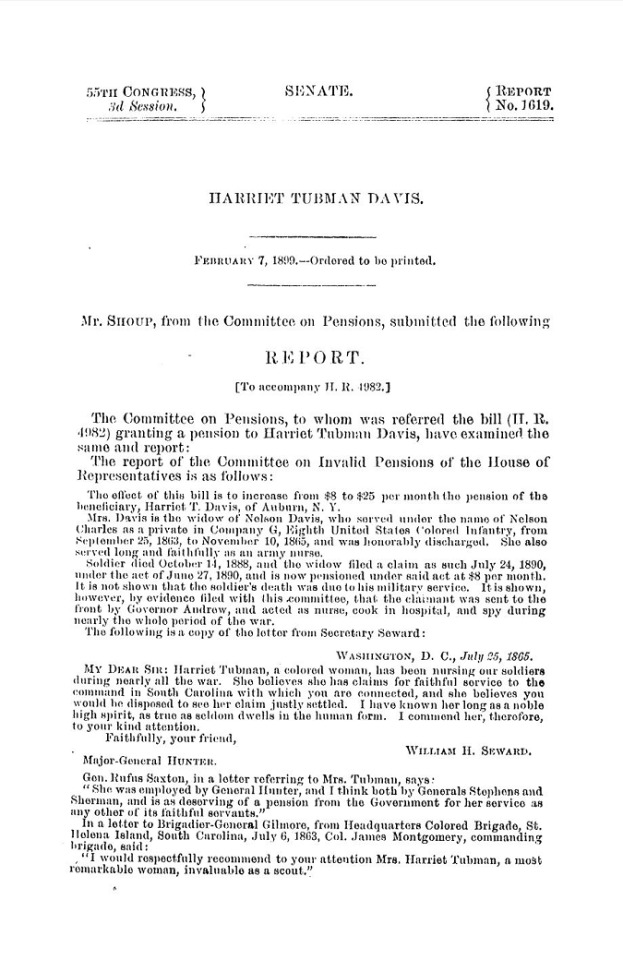
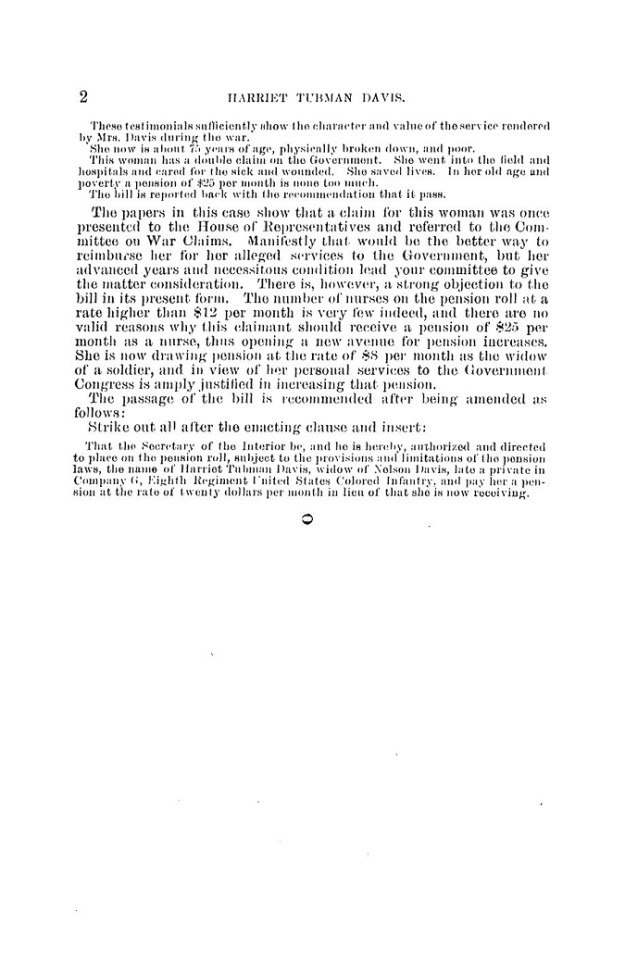
Senate Report 1619 to Accompany a Bill Granting a Pension to Harriet Tubman Davis
Record Group 233: Records of the U.S. House of RepresentativesSeries: Accompanying PapersFile Unit: Accompanying Papers of the 55th Congress
55th Congress, 3d Session. Senate Report No. 1619. HARRIET TUBMAN DAVIS. FEBRUARY 7, 1899. - Ordered to be printed. Mr. SHOUP, from the Committee on Pensions, submitted the following REPORT. [To accompany H. R. 4982.] The Committee on Pensions, to whom was referred the bill (H. R. 4892) granting a pension to Harriet Tubman Davis, have examined the same and report: The report of the Committee on Invalid Pensions of the House of Representatives is as follows: The effect of this bill is to increase from $8 to $25 per month the pension of the beneficiary, Harriet T. Davis, of Auburn, N. Y. Mrs. Davis is the widow of Nelson Davis, who served under the name of Nelson Charles as a private in Company G, Eighth United States Colored Infantry, from September 25, 1863, to November 10, 1865, and was honorably discharged. She also served long and faithfully as an army nurse. Soldier died October 14, 1888, and the widow filed a claim as such July 24, 1890, under the act of June 27, 1890, and is now pensioned under said act at $8 per month. It is not shown that the soldier's death was due to his military service. It is shown, however, by evidence filed with this committee, that the claimant was sent to the front by Governor Andrew, and acted as a nurse, cook in hospital, and spy during nearly the whole period of the war. The following is a copy of the letter from Secretary Seward: WASHINGTON, D. C., July 25, 1865. MY DEAR SIR: Harriet Tubman, a colored woman, has been nursing our soldiers during nearly all the war. She believes she has claims for faithful service to the command in South Carolina with which you are connected, and she believes you would be disposed to see her claim justly settled. I have known her long as a noble high spirit, as true as seldom dwells in the human form. I commend her, therefore, to your kind attention. Faithfully, your friend, WILLIAM H. SEWARD. Major-General HUNTER. Gen. Rufus Saxton, in a letter referring to Mrs. Tubman, says: "She was employed by General Hunter, and I think both by General Stephens and Sherman, and is as deserving of a pension from the Government for her service as any other of its faithful servants." In a letter to Brigadier-General Gilmore, from Headquarters Colored Brigade, St. Helena Island, South Carolina, July 6, 1863, Col. James Montgomery, commanding brigade, said: "I would respectfully recommend to your attention Mrs. Harriet Tubman, a most remarkable women, invaluable as a scout."2 HARRIET TUBMAN DAVIS. These testimonials sufficiently show the character and value of the service rendered by Mrs, Davis during the war. She now is about 75 years of age, physically broken down, and poor. This woman has a double claim on the Government. She went into the field and hospitals and cared for the sick and wounded. She saved lives. In her old age and poverty a pension of $25 per month is none too much. The bill is reported back with the recommendation that it pass. The papers in this case show that a claim for this woman was once presented to the House of Representatives and referred to the Committee on War Claims. Manifestly that would be the better way to reimburse her for her alleged services to the Government, but her advanced years and necessitous condition lead your committee to give the matter consideration. There is, however, a strong objection to the bill in its present form. The number of nurses on the pension roll at a rate higher than $12 per month is very few indeed, and there are no valid reasons why this claimant should receive a pension of $25 per month as a nurse, thus opening a new avenue for pension increases. She is now drawing pension at the rate of $8 per month as the widow of a soldier, and in view of her personal services to the Government Congress is amply justified in increasing that pension. [full transcription at link]
27 notes
·
View notes